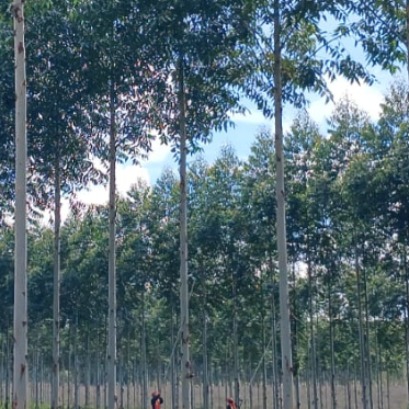
Specialist in scanner technology in the wood - processing industry
(Friesach/Carinthia, February 27, 2018) SPRINGER Group, a leading international technology supplier, has acquired a majority stake in Finnish company FinScan. A company with its head office in Espoo (Helsinki area) is a specialist in scanners and software for automated optimization of lumber in sawmills. FinScan has installed more than 400 scanners in over 20 countries around the world.
Timo Springer, CEO of SPRINGER-Group is pleased about the growth: With the majority stake in FinScan we extend our market product portfolio as an integrated technology provider for the wood-processing industry. From now, we have an extensive range of optimization systems in the wood-processing industry at our disposal and that way, we can expand our technological and innovative leadership. “We see good opportunities to grow and strengthen our position in the future together. We are looking forward to working together”,
“FinScan is very successful, has long time customers and has a clear portfolio of sophisticated scanner solutions at its disposal. Through the merger with SPRINGER we expect a further technological progress”, confirms Jyri Smagin, CEO of FinScan Oy, who will continue running the company at the same managing position.
Para mayor informacion: http://springer.vetas.com

PODE LHE INTERESSAR
 Missões | Novo corte ilegal no Parque Provincial Piñalito, em San Pedro, revela a expansão silenciosa do desmatamento em áreas protegidas
Missões | Novo corte ilegal no Parque Provincial Piñalito, em San Pedro, revela a expansão silenciosa do desmatamento em áreas protegidas
O avanço do desmatamento em áreas protegidas ficou mais uma vez evidente esta semana no Parque Provincial Piñalito Sur, em San Pedro, onde o Ministério de Ecologia e Recursos Naturais Renováveis ??confirmou um novo caso de extração ilegal seletiva de madeira. O evento ocorre num contexto de crescente preocupação com a fragilidade do sistema de controle ambiental nas áreas rurais e fronteiriças, onde a escassez de recursos, pessoal e logística limita a capacidade de vigilância contra organizações criminosas organizadas para roubar madeiras nativas e comercializá-las no mercado negro em conivência com proprietários de serrarias.
 A descoberta de bactérias produtoras de metano nas árvores repensa o papel ecológico das florestas
A descoberta de bactérias produtoras de metano nas árvores repensa o papel ecológico das florestas
Estudo pioneiro mostra a surpreendente diversidade microbiana interna das árvores e a influência potencial no clima global, impulsionando novas estratégias para a gestão agrícola e florestal
 Paraguai | As plantações tornaram-se instrumentos de desenvolvimento territorial e de geração de empregos decentes, destaca o INFONA.
Paraguai | As plantações tornaram-se instrumentos de desenvolvimento territorial e de geração de empregos decentes, destaca o INFONA.
Plantios em diferentes fases, controle de formigas e ervas daninhas, podas e desbastes, colheita mecanizada, tecnologia aplicada ao campo e integração completa do ciclo produtivo fizeram parte da proposta do CREA Forestal em sua Conferência de Atualização Técnica – JAT Forestal 2025. O evento aconteceu na sexta-feira, 14 de novembro, na Estância Ñemity, localizada em San Juan Nepomuceno, Caazapá, onde produtores agrícolas, técnicos, empreiteiros, estudantes e empresas do setor se reuniram para observar em ação o negócio florestal do futuro.






















